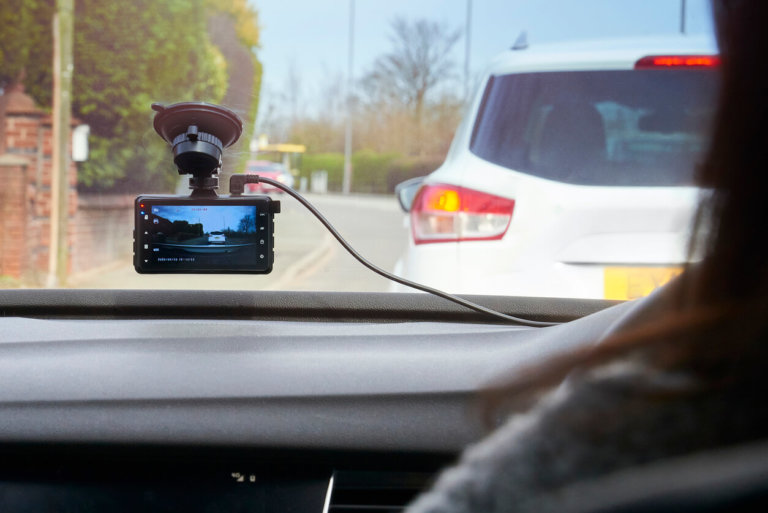Every day, people use video cameras to document real-life events in real-time sequence. Video cameras capture unscripted people and moments as they happen, recording events as they play out.
Congested New Jersey roadways and rising auto accident rates have led to increased use of dashboard cameras by New Jersey drivers. New Jersey personal injury attorneys agree that dash cameras can provide valuable information regarding the circumstances surrounding car accidents and who is at fault.
How do dash cams work, and can a dash cam help your car accident case?
How Does a Dash Cam Work?
Dashboard cameras are small video recorders installed in your vehicle. Generally, they are mounted to the dashboard or sometimes the windshield. Depending on the camera model you purchase, your dash cam may:
- record visual footage at the front of the vehicle
- record interior video and audio
- record rear or side view footage
- register your vehicle’s speed
- activate when the car is placed gear
- activate in response to motion inside, around, or near the vehicle
When using a dash cam video for your car accident claim, remember that video cameras record everything without bias. Your behaviors and actions will be as much on display as those of the other driver.
Dash Cams Capture Details You Otherwise Might Not
Car accidents happen quickly and unexpectedly, and confusion can easily set in afterward. You may not be able to commit to memory everything you saw. Dash cams provide a valuable benefit of capturing details you may have missed:
- witnesses
- the other driver’s behaviors
- road hazards
- faulty traffic signals or missing road signs
- vehicle information such as the make, model, and license plate numbers of cars that have left the scene of the accident
Your attorney will need as much evidence as possible when determining who is at fault in the accident. Dash cam footage can fill in the gaps and provide essential information that you might otherwise not recollect.
Is a Dash Cam Footage Admissible in New Jersey Courts?
It is legal in New Jersey to own and operate dash cameras. Dash cam footage can be beneficial in settlement negotiations and litigation. However, only unedited dash cam footage is admissible in court.
As you consider using your dash cam video, you and your personal injury attorney will need to evaluate if the video compromises your case in any way. Remember, dash cams are unbiased observers recording everyone and everything without a filter. If the opposing party is aware of the dash camera and potential video, they may subpoena the footage to support their counter-argument against your claim.
Ask a New Jersey Personal Injury Attorney if Your Dash Cam Will Help Your Case
If you are involved in a New Jersey car accident, consulting a personal injury attorney is a priority after receiving medical attention. Your attorney will gather evidence to support a claim for damages. Winning compensation for your injuries can involve a nasty fight against big insurance, and the more evidence there is to help your case, the stronger your position.
Dash cams offer a valuable account of the accident and are useful in verifying your version of events. Similarly, the video footage can refute false accusations and evidence fabricated by the opposition.
To better understand how dash cam video can help your case, contact our New Jersey law office today. Our experienced personal injury attorneys will explain your legal options and work to get the compensation you deserve.

